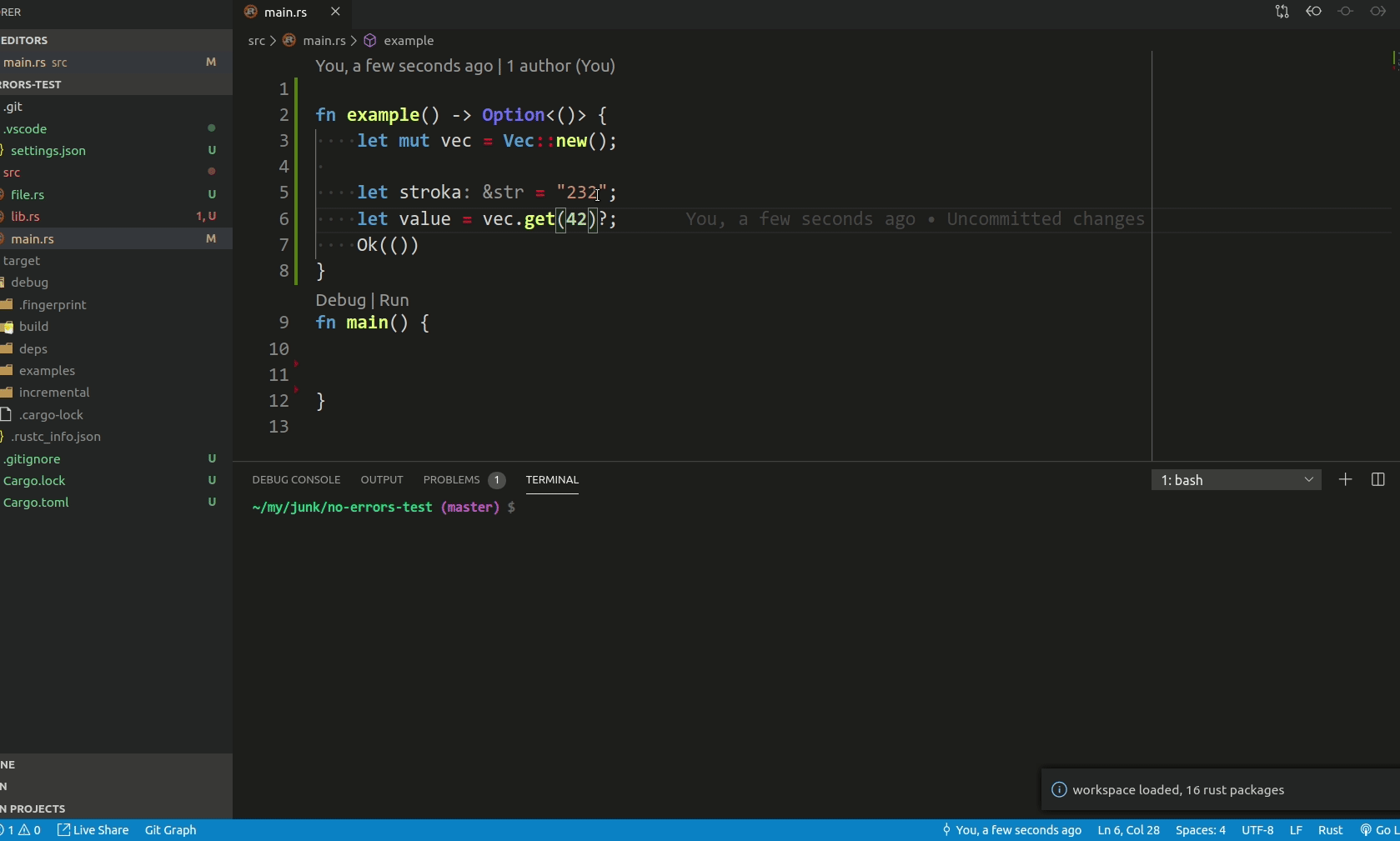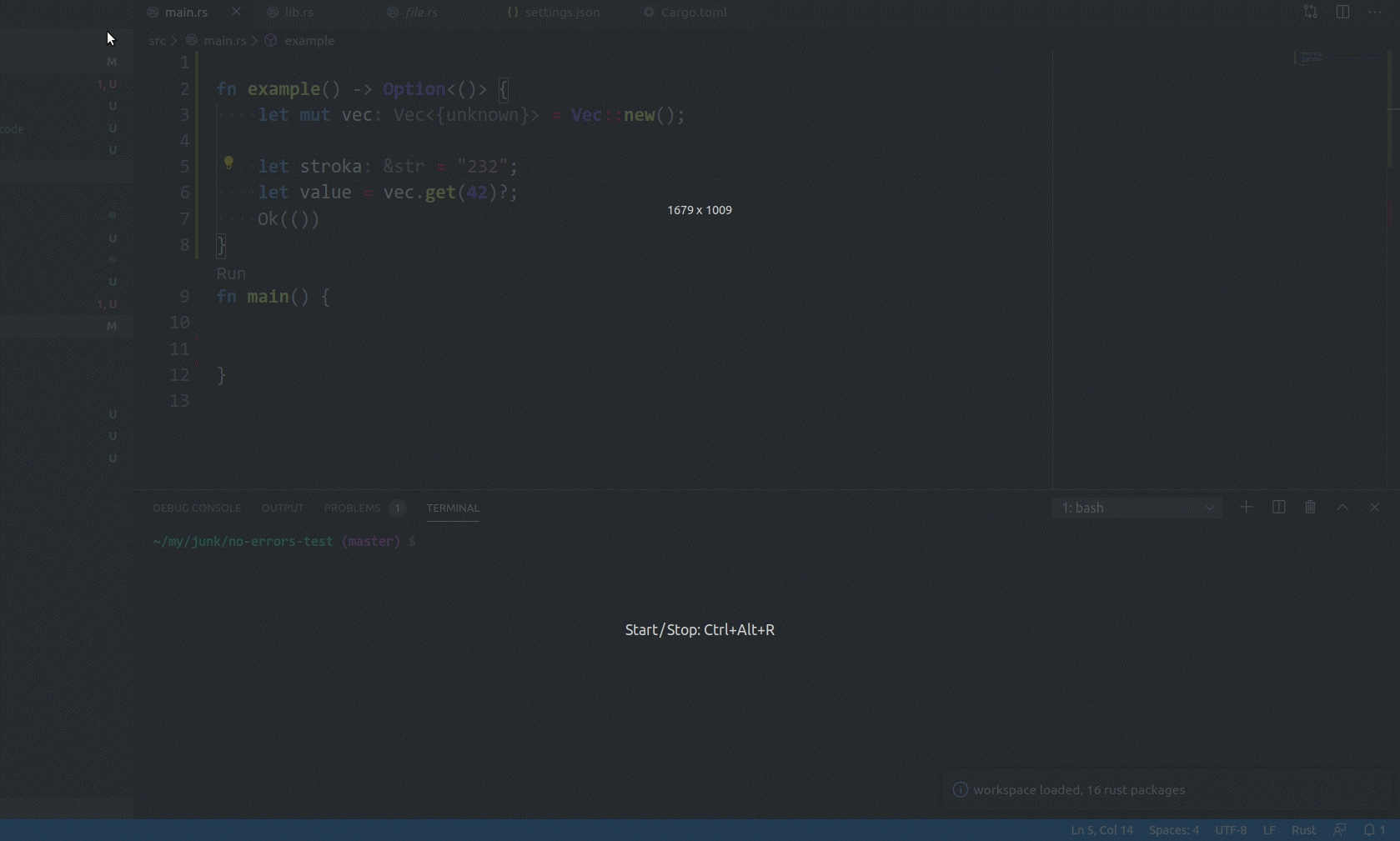3513: Completion in macros r=matklad a=flodiebold
I experimented a bit with completion in macros. It's kind of working, but there are a lot of rough edges.
- I'm trying to expand the macro call with the inserted fake token. This requires some hacky additions on the HIR level to be able to do "hypothetical" expansions. There should probably be a nicer API for this, if we want to do it this way. I'm not sure whether it's worth it, because we still can't do a lot if the original macro call didn't expand in nearly the same way. E.g. if we have something like `println!("", x<|>)` the expansions will look the same and everything is fine; but in that case we could maybe have achieved the same result in a simpler way. If we have something like `m!(<|>)` where `m!()` doesn't even expand or expands to something very different, we don't really know what to do anyway.
- Relatedly, there are a lot of cases where this doesn't work because either the original call or the hypothetical call doesn't expand. E.g. if we have `m!(x.<|>)` the original token tree doesn't parse as an expression; if we have `m!(match x { <|> })` the hypothetical token tree doesn't parse. It would be nice if we could have better error recovery in these cases.
Co-authored-by: Florian Diebold <flodiebold@gmail.com>
3516: Handle visibility in more cases in completion r=matklad a=flodiebold
This means we don't show private items when completing paths or method calls.
We might want to show private items if we can edit their definition and provide a "make public" assist, but I feel like we'd need better sorting of completion items for that, so they can be not shown or sorted to the bottom by default. Until then, they're usually more of a distraction to me.
Co-authored-by: Florian Diebold <flodiebold@gmail.com>
3518: Add parse_to_token_tree r=matklad a=edwin0cheng
This PR introduce a function for parsing `&str` to `tt::TokenTree`:
```rust
// Convert a string to a `TokenTree`
pub fn parse_to_token_tree(text: &str) -> Option<(tt::Subtree, TokenMap)> {
````
Co-authored-by: Edwin Cheng <edwin0cheng@gmail.com>
3378: vscode: redesign inlay hints to be capable of handling multiple editors for one source file r=Veetaha a=Veetaha
Fixes: #3008 (inlay corruption with multiple editors for one file).
Fixes: #3319 (unnecessary requests for inlay hints when switching unrelated source files or output/log/console windows)
Also, I don't know how, but the problem described in #3057 doesn't appear for me anymore (maybe it was some fix on the server-side, idk), the inlay hints are displaying right away. Though the last time I checked this it was caused by the server returning an empty array of hints and responding with a very big latency, I am not sure that this redesign actually fixed #3057....
We didn't handle the case when one rust source file is open in multiple editors in vscode (e.g. by manually adding another editor for the same file or by opening an inline git diff view or just any kind of preview within the same file).
The git diff preview is actually quite special because it causes memory leaks in vscode (https://github.com/microsoft/vscode/issues/91782). It is not removed from `visibleEditors` once it is closed. However, this bug doesn't affect the inlay hints anymore, because we don't issue a request and set inlay hints for each editor in isolation. Editors are grouped by their respective files and we issue requests only for files and then update all duplicate editors using the results (so we just update the decorations for already closed git diff preview read-only editors).
Also, note on a hack I had to use. `vscode.TextEdtior` identity is not actually public, its `id` field is not exposed to us. I created a dedicated upstream issue for this (https://github.com/microsoft/vscode/issues/91788).
Regarding #3319: the newly designed hints client doesn't issue requests for type hints when switching the visible editors if it has them already cached (though it does rerender things anyway, but this could be optimized in future if so wanted).
<details>
<summary>Before</summary>

</details>
<details>
<summary> After </summary>

</details>
Co-authored-by: Veetaha <gerzoh1@gmail.com>
3508: Use a not so dummy implementation of env macro r=edwin0cheng a=edwin0cheng
Currently we have a dummy `env` macro implementation which expand to an empty string, such that a `include!(concat!(env!("OUT_DIR"), "/foo.rs"))` will become `include!("/foo.rs")`, and here may be a infinite loop. :)
This PR use a not so dummy version of `env` macro to prevent this infinite loop.
Co-authored-by: Edwin Cheng <edwin0cheng@gmail.com>
3502: Don't reuse the Chalk solver r=matklad a=flodiebold
This slows down analysis-stats a bit (~5% in my measurement), but improves
incremental checking a lot because we can reuse trait solve results.
Co-authored-by: Florian Diebold <florian.diebold@freiheit.com>
3499: Resolve `Self::AssocTy` in impls r=matklad a=flodiebold
To do this we need to carry around the original resolution a bit, because `Self`
gets resolved to the actual type immediately, but you're not allowed to write
the equivalent type in a projection. (I tried just comparing the projection base
type with the impl self type, but that seemed too dirty.) This is basically how
rustc does it as well.
Fixes#3249.
Co-authored-by: Florian Diebold <florian.diebold@freiheit.com>